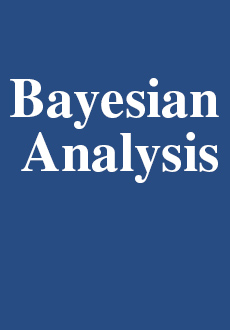Abstract
Bacteria reproduce clonally but most species recombine frequently, so that the ancestral process is best captured using an ancestral recombination graph. This graph model is often too complex to be used in an inferential setup, but it can be approximated for example by the ClonalOrigin model. Inference in the ClonalOrigin model is performed via a Reversible-Jump Markov Chain Monte Carlo algorithm, which attempts to jointly explore: the recombination rate, the number of recombination events, the departure and arrival points on the clonal genealogy for each recombination event, and the range of genomic sites affected by each recombination event. However, the Reversible-Jump algorithm often performs poorly due to the complexity of the target distribution since it needs to explore spaces of different dimensions. Recent developments in Bayesian computation methodology have provided ways to improve existing methods and code, but are not well-known outside the statistics community. We show how exploiting one of these new computational methods can lead to faster inference under the ClonalOrigin model.
Funding Statement
Felipe J. Medina-Aguayo and Richard G. Everitt were supported by the UK Biotechnology and Biological Sciences Re-search Council grant BB/N00874X/1. Felipe J. Medina-Aguayo got support from ONRG-RGCOMM grant, and partial funding from CONACYT CB-2016-01-284451 grant.
Acknowledgments
FJM-A and RGE were supported by the UK Biotechnology and Biological Sciences Research Council grant BB/N00874X/1. FJM-A also acknowledges support from an ONRG-RGCOMM grant, and partial funding from CONACYT CB-2016-01-284451 grant.
Citation
Felipe J Medina-Aguayo. Xavier Didelot. Richard G Everitt. "Speeding up Inference of Homologous Recombination in Bacteria." Bayesian Anal. 19 (4) 1245 - 1275, December 2024. https://doi.org/10.1214/23-BA1388
Information





